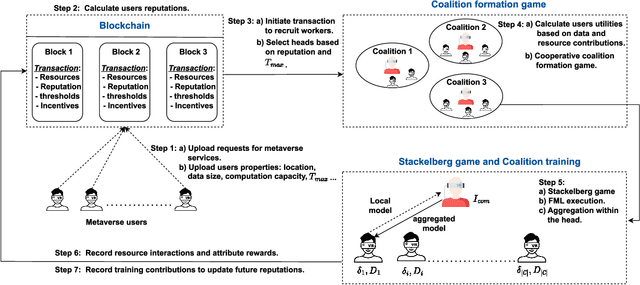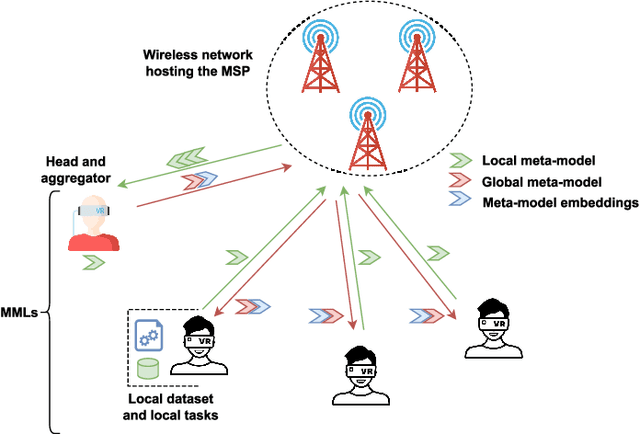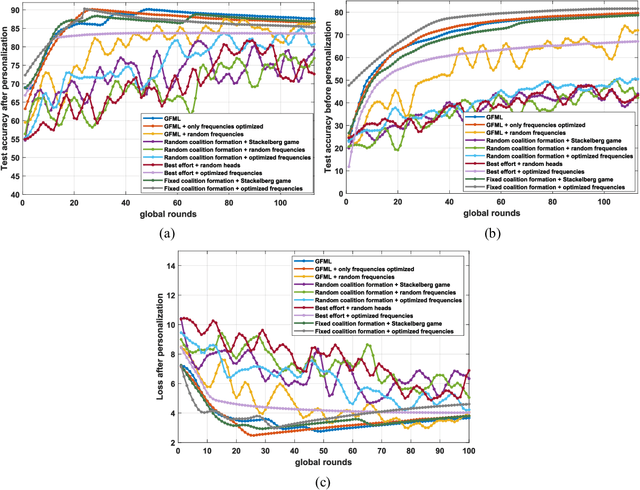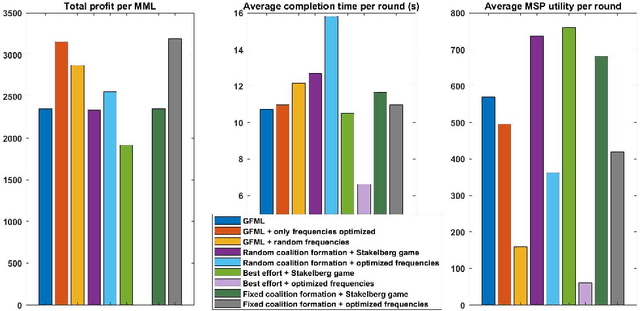A Blockchain-based Reliable Federated Meta-learning for Metaverse: A Dual Game Framework
Paper and Code
Aug 07, 2024



The metaverse, envisioned as the next digital frontier for avatar-based virtual interaction, involves high-performance models. In this dynamic environment, users' tasks frequently shift, requiring fast model personalization despite limited data. This evolution consumes extensive resources and requires vast data volumes. To address this, meta-learning emerges as an invaluable tool for metaverse users, with federated meta-learning (FML), offering even more tailored solutions owing to its adaptive capabilities. However, the metaverse is characterized by users heterogeneity with diverse data structures, varied tasks, and uneven sample sizes, potentially undermining global training outcomes due to statistical difference. Given this, an urgent need arises for smart coalition formation that accounts for these disparities. This paper introduces a dual game-theoretic framework for metaverse services involving meta-learners as workers to manage FML. A blockchain-based cooperative coalition formation game is crafted, grounded on a reputation metric, user similarity, and incentives. We also introduce a novel reputation system based on users' historical contributions and potential contributions to present tasks, leveraging correlations between past and new tasks. Finally, a Stackelberg game-based incentive mechanism is presented to attract reliable workers to participate in meta-learning, minimizing users' energy costs, increasing payoffs, boosting FML efficacy, and improving metaverse utility. Results show that our dual game framework outperforms best-effort, random, and non-uniform clustering schemes - improving training performance by up to 10%, cutting completion times by as much as 30%, enhancing metaverse utility by more than 25%, and offering up to 5% boost in training efficiency over non-blockchain systems, effectively countering misbehaving users.
 Add to Chrome
Add to Chrome Add to Firefox
Add to Firefox Add to Edge
Add to Edge